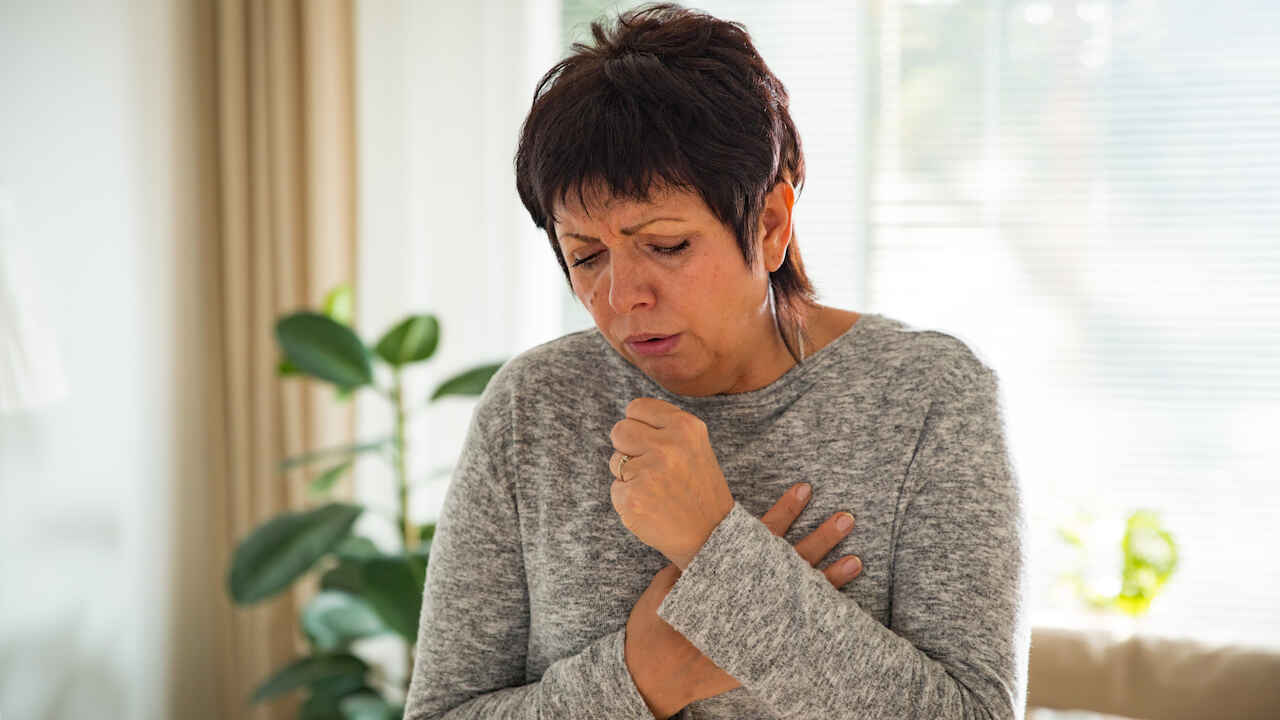
Here’s how to recognize symptoms of this illness – and how to avoid getting it.
Pneumonia is a respiratory illness, or lung infection, caused by a virus, bacteria or fungus. It can be mild or serious and may affect one or both lungs at the same time. Pneumonia affects people of all ages, although some people may be at higher risk than others. Older adults (over age 65), young children (under age 2) and people who smoke are more at risk. People with some chronic health conditions, such as diabetes or heart disease, may also be more susceptible to pneumonia.
Can Pneumonia Be Prevented?
The best way to prevent serious complications from pneumonia is to take steps to avoid getting sick with other respiratory illnesses that may lead to pneumonia in the first place.
Since the flu is one of the most common causes of pneumonia, getting a flu shot each year may help prevent pneumonia. Depending on your age, your doctor may also recommend a pneumococcal vaccine.
COVID-19 may also cause pneumonia. People over 65 and those with a weakened immune system or a condition that weakens the lungs are at higher risk of COVID-19 pneumonia. Taking steps to avoid being infected with the novel coronavirus is a smart way to prevent pneumonia and other potentially serious health issues. These include wearing a face covering, washing hands often, staying at least 6 feet from people you don’t live with and avoiding anyone who is sick.
While there’s no sure way to guarantee you won’t get pneumonia, practicing healthy lifestyle habits such as not smoking, limiting alcohol, exercising regularly, eating healthy and managing chronic health conditions will help keep your lungs healthier and your immune system stronger, making it more likely that your body can fight off this lung infection if you do get it.
What Are the Symptoms of Pneumonia?
Symptoms of pneumonia may vary in severity and duration. They may include:
- cough, which may produce phlegm
- fever, sweating and chills
- shortness of breath, difficulty breathing deeply or rapid breathing
- chest pain
- fatigue
- loss of appetite, nausea or vomiting
- bluish color to lips or nails
- mental confusion (especially in older adults)
What to Do if You Have Symptoms
If you suspect you have pneumonia or have symptoms of pneumonia, see a doctor as soon as possible. Getting a proper diagnosis and beginning treatment is the best way to avoid serious complications.
Diagnosis may be made through a physical exam during which a doctor listens to your lungs using a stethoscope. He or she will also ask about your symptoms and health history and may check your blood oxygen level using a pulse oximeter. Other ways to diagnose pneumonia include chest x-ray or CT scan, bloodwork or other tests that identify fluid in the lungs.
What Does Treatment Involve?
Treatment for pneumonia depends on the severity of the illness and the type of pneumonia you have (bacterial or viral). If you have mild to moderate illness, you can usually be treated at home with:
- Antibiotics. If you have bacterial pneumonia, antibiotics will help clear up the infection. They will not help viral pneumonia, however. Finish any medication you’ve been prescribed.
- Cough medicine. Coughing helps loosen fluid and move it out of your lungs so it’s a good idea to not completely eliminate your cough. But if your cough is severe and interrupts sleep, this may help.
- Fever reducers/pain relievers. These include over-the-counter drugs like ibuprofen (Motrin IB, Advil), acetaminophen (Tylenol) and aspirin.
- Fluids. Stay hydrated and drink plenty of fluids to loosen mucus in your lungs.
- Rest. Your body needs time to rest so it can recover. Don’t return to your normal activities until your temperature is normal and you’re not coughing.
You may need to be admitted to a hospital for care if your symptoms don’t improve, you have difficulty breathing, your lips or nails turn blue, you become confused or you have underlying health conditions.
Copyright 2020 © Baldwin Publishing, Inc. All rights reserved.
Health eCooking® is a registered trademark of Baldwin Publishing, Inc. Cook eKitchen™ is a designated trademark of Baldwin Publishing, Inc. Any duplication or distribution of the information contained herein without the express approval of Baldwin Publishing, Inc. is strictly prohibited.
Date Last Reviewed: September 17, 2020
Editorial Review: Andrea Cohen, Editorial Director, Baldwin Publishing, Inc. Contact Editor
Medical Review: Perry Pitkow, MD
Learn more about Baldwin Publishing Inc. editorial policy, privacy policy, ADA compliance and sponsorship policy.
No information provided by Baldwin Publishing, Inc. in any article is a substitute for medical advice or treatment for any medical condition. Baldwin Publishing, Inc. strongly suggests that you use this information in consultation with your doctor or other health professional. Use or viewing of any Baldwin Publishing, Inc. article signifies your understanding and agreement to the disclaimer and acceptance of these terms of use.